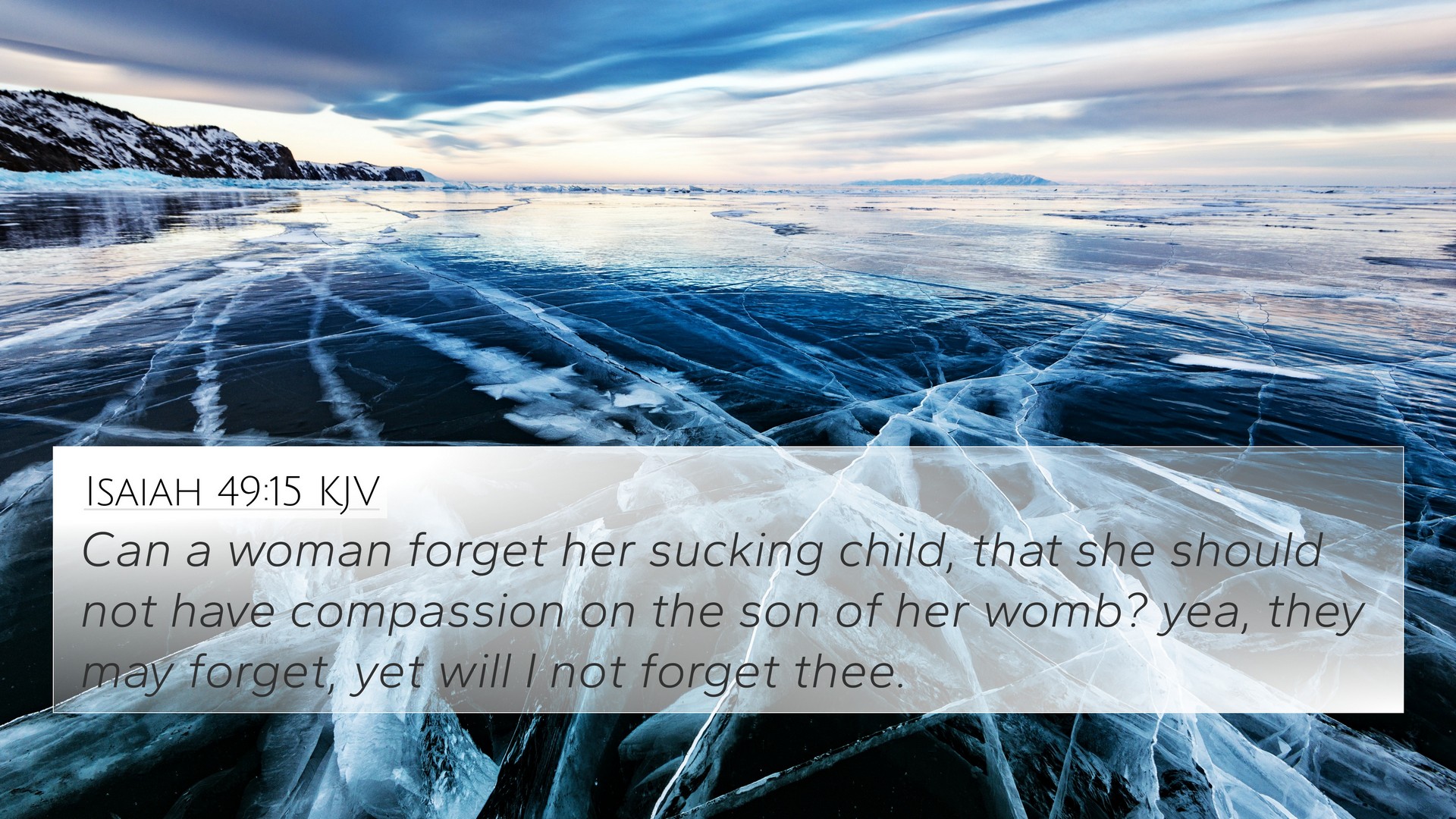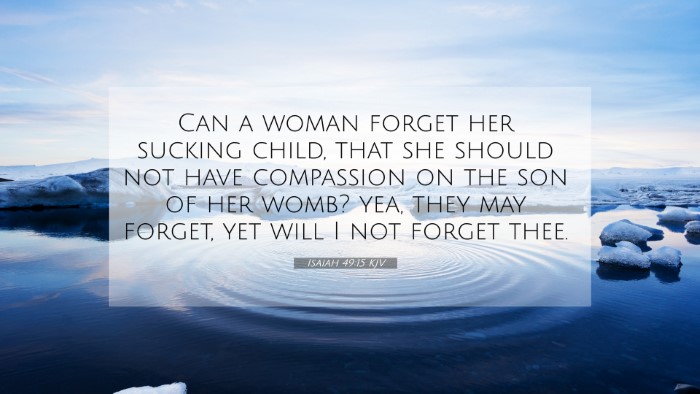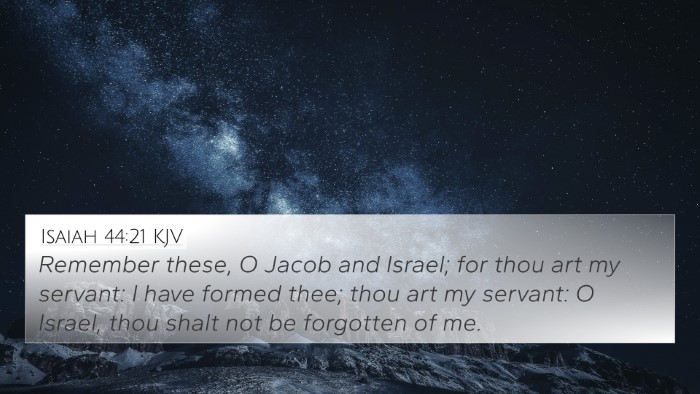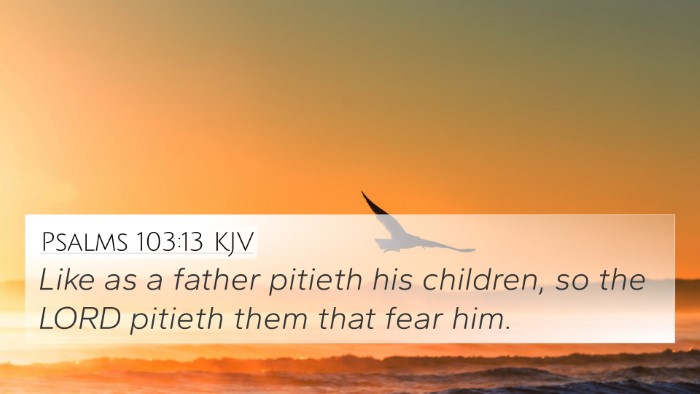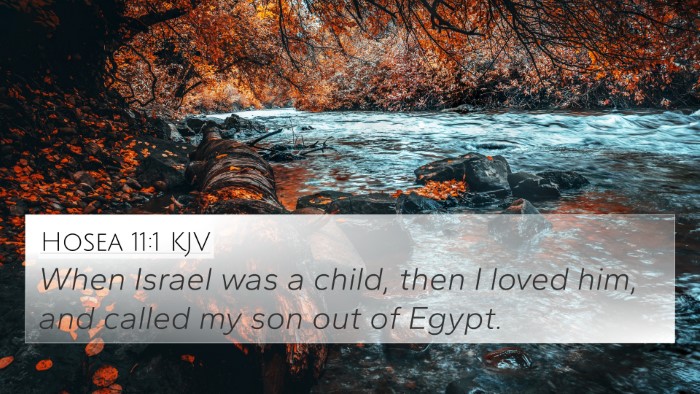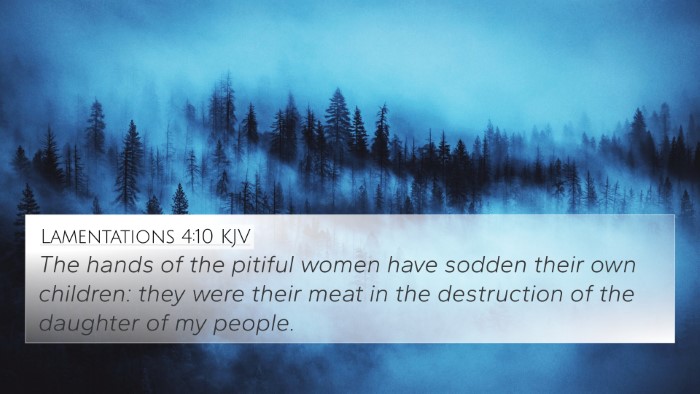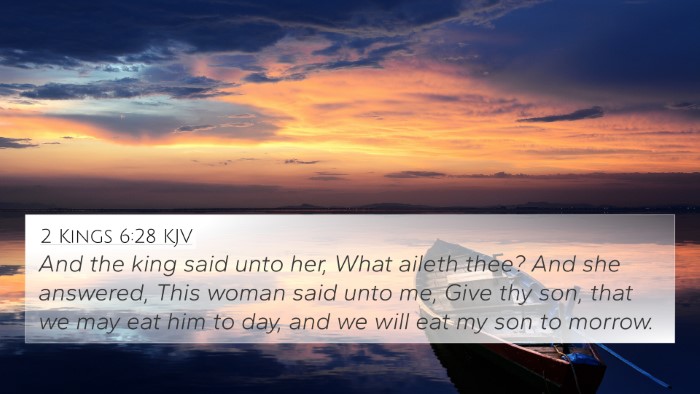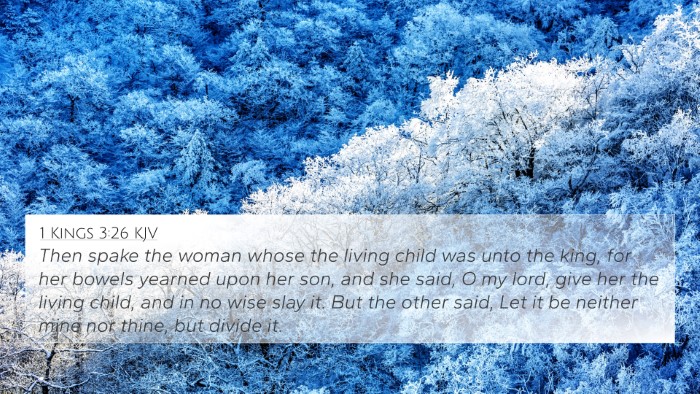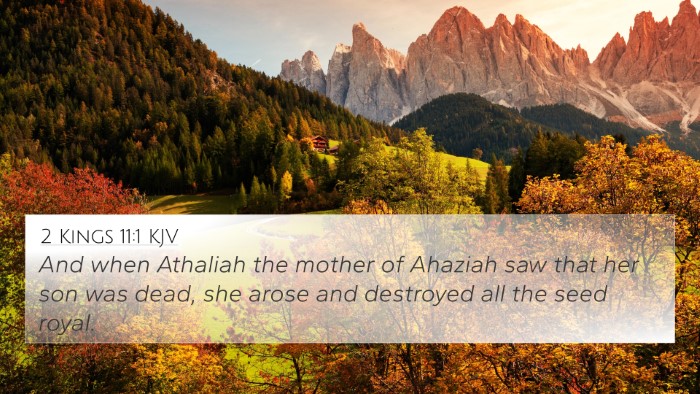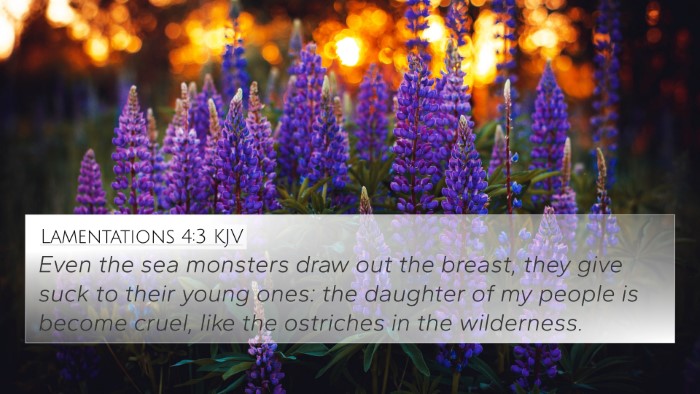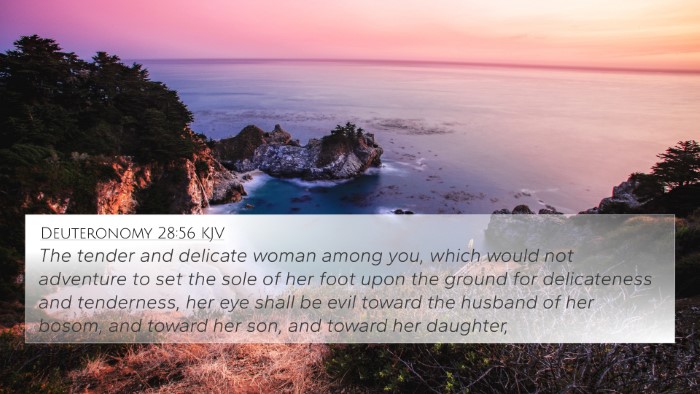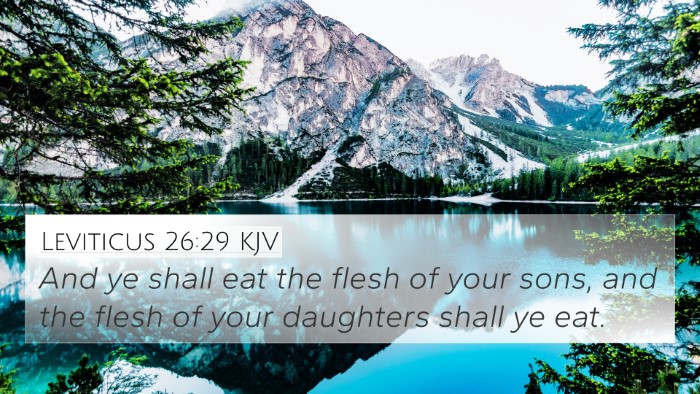Understanding Isaiah 49:15
Verse Reference: Isaiah 49:15
"Can a woman forget her suckling child, that she should not have compassion on the son of her womb? yea, they may forget, yet will I not forget thee."
Summary of Meaning
Isaiah 49:15 presents a profound inquiry into the nature of maternal love, illustrating God's unwavering commitment and affection towards His people. The rhetorical question posed by the prophet highlights the instinctual bond between a mother and her child, which is so deep that it defies abandonment. Yet, it acknowledges that, despite this strong connection, some may indeed forget their children. In contrast, God promises that He will never forget His own. This powerful assurance reassures believers of His faithfulness and love.
Insights from Public Domain Commentaries
This verse has been examined by multiple commentators, providing rich insights into its meaning:
- Matthew Henry: Henry reflects on the analogy between a mother and God, emphasizing that although human ties can falter, Divine love is steadfast. He notes that even when individuals stray or feel forsaken, God's remembrance and love are constant.
- Albert Barnes: Barnes elaborates on the metaphor of maternal love as being the strongest human bond, yet it may still break under certain circumstances. He insists that this does not diminish God’s love, which remains infinite and unwavering, serving as a comfort to those who feel abandoned.
- Adam Clarke: Clarke comments on the sociocultural aspects of the verse, suggesting that it speaks to the deep-rooted instincts within maternal nurture, pointing to how divine relations supersede even the most profound human relationships.
Bible Cross-References
In exploring the connections within Scripture, the following verses relate to Isaiah 49:15, shedding light on God's enduring love and remembrance:
- Deuteronomy 31:6: "Be strong and of a good courage, fear not, nor be afraid of them: for the LORD thy God, he it is that doth go with thee; he will not fail thee, nor forsake thee."
- Psalm 27:10: "When my father and my mother forsake me, then the LORD will take me up."
- John 10:14: "I am the good shepherd, and know my sheep, and am known of mine."
- Romans 8:38-39: "For I am persuaded, that neither death, nor life, nor angels, nor principalities, nor powers, nor things present, nor things to come, shall be able to separate us from the love of God."
- Matthew 28:20: "And, lo, I am with you always, even unto the end of the world. Amen."
- Hebrews 13:5: "For he hath said, I will never leave thee, nor forsake thee."
- Isaiah 43:1-2: "But now thus saith the LORD that created thee, O Jacob, and he that formed thee, O Israel, Fear not: for I have redeemed thee, I have called thee by thy name; thou art mine."
Thematic Connections
This verse creates thematic bridges across various biblical narratives, underscoring the consistency of God's character throughout the Scripture. Here are some key themes to consider:
- The Theme of Divine Faithfulness: The assurance of God's remembrance aligns with other verses illustrating His eternal commitment to His people.
- The Theme of Maternal and Protective Love: The metaphorical use of a mother's love reflects broader themes of care depicted throughout the Bible.
- The Theme of Redemption: God's promise of never forgetting ties into the overarching narrative of redemption and reconciliation found throughout both the Old and New Testaments.
How to Approach Biblical Cross-Referencing
Engaging in cross-referencing can significantly enhance your understanding of biblical texts. Here are several methods:
- Utilize a Bible Concordance: This tool will help you find verses related to specific themes or keywords, facilitating deeper study.
- Access Bible Study Guides: Many resources offer cross-referencing systems that link various scriptures thematically.
- Engage in Comparative Studies: Analyze how different books of the Bible speak to similar issues or assurances, providing a fuller understanding of concepts like divine love.
Final Thoughts
Isaiah 49:15 serves as a reminder of the depth of God's love and care for His creation. By exploring the interconnectedness of Scripture through cross-referencing, individuals can gain a holistic understanding of biblical teachings. This verse, while profound in its message, encapsulates a greater discourse found throughout the Bible concerning God's enduring faithfulness to His people. As one navigates through scriptural writings, the reassurance that God will never forget His people offers hope and comfort in times of uncertainty.
